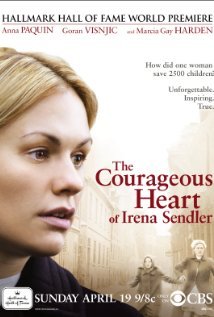By Diana Anderson-Tyler
Actress, author, and producer Candace Cameron Bure is beloved by millions for her role as “D.J. Tanner” on the iconic hit sitcom, FULL HOUSE. The character of “D.J.” has been praised by parents and once-impressionable former viewers for being a positive influence for teenagers and pre-teenage girls. With imperfections and struggles in two, D.J. displayed selflessness and responsibility as she resisted peer pressure, and remained chaste. Today at age 37, the actress who played “D.J.” continues to be a superb role model for women of all ages.
Since her return into the limelight after a ten-year hiatus, Mrs. Bure has been outspoken about her passion for both family and faith, namely her faith in Jesus Christ. Most recently, she has been a guest on HuffPost Live and the TODAY show to discuss her traditional views on marriage, namely that wives should take on a “submissive” role within the marital relationship.
In her interview with HuffPost Live, Bure said she embraces the biblical definition of submissiveness.
“It is meekness,” she said. “It is not weakness. It is strength under control. It is bridled strength.” She went on to explain that, in her opinion, a marriage cannot possess “two heads of authority.”
Mrs. Bure has been married to her husband, retired National Hockey League player, Valeri Bure, for 17 years. The couple has three children and a rock-solid relationship founded on the Bible, which Mrs. Bure refers to as a “blueprint for marriage.”
Often asked how she and her husband have avoided problems of jealousy, temptation, and infidelity that commonly arise among celebrity couples, Bure told YourTango.com she limits her physical interaction with fellow actors.
“I have boundaries that my husband and I talked about and are both comfortable with,” Bure said in an interview with YourTango.com. “I’m not going to get naked, and I’m not going to have sex scenes. At the same time, even a little peck on the lips [with a costar] is uncomfortable for my husband to watch, so he doesn’t always watch. He’s completely supportive of what I do, so if the worst thing is him not watching something I did, that’s great. That’s what works for us in our relationship.”
Mrs. Bure’s bold and courageous stance on both marriage and modesty shines in stark contrast to the darkness consuming much of modern movies and entertainment. Researchers at the Annenberg Public Policy Center at the University of Pennsylvania reviewed 390 popular movies released between 1985 and 2010 and found that nearly 90 percent of top-grossing movies (with ratings ranging from G to R) featured main characters acting violently, and in 77 percent of those movies, the characters also engage in sexual behaviors, drink alcohol, or smoke. Even more unsettling, there was little data to indicate a difference between PG-13 and R-rated films regarding the frequency of deviant or promiscuous behavior.
According to TIME magazine, more than half of the highest-grossing PG-13 movies over the past 25 years feature characters who act violently and drink and/or have sex. What’s more, the two acts usually occur within a five-minute segment. The University of Pennsylvania study cited movies like QUANTUM OF SOLACE and MR. AND MRS. SMITH as examples of PG-13 movies where characters strip and drink as fight scenes ensue.
The study says that exposing teenagers to violent, sexual behavior is problematic, because “youth, particularly those with impulsive sensation-seeking tendencies, may be at elevated risk for unhealthy behaviors as a result of their media exposure to problematic content.”
According to research from Jane D. Brown, professor in the School of Journalism and Mass Communication at the University of North Carolina at Chapel Hill, the Internet has caused a dramatic increase in the availability of sexually explicit content.
“Computer and Internet use is diffusing more rapidly than any previous technology,” Brown writes. “As of the end of 1999, more than half (56%) of all adults in the United States were online. It is expected that by 2010 most U.S. homes with children will have access to the Internet (Taylor, 1999).”[1]
Ms. Brown states that the word “sex” is the most popular word used on the Internet today (CyberAtlas, 2001).[2] She cites national survey showing that one out of four young people from ages 10 to 17 who regularly used the Internet said he or she had encountered unwanted pornography in the past year, and one out of five had been exposed to unwanted sexual solicitations or approaches (Finkelhor, Mitchell, & Wolak, 2000).[3]
It doesn’t take academic studies to prove to us that gratuitous, obscene, and completely unbiblical portrayals of sexuality are saturating our mass mainstream media. Never before in our nation’s history have young people been exposed to lyrics, TV shows, movies, and even commercials so ungodly that they seem to harken back to the days of Sodom and Gomorrah.
High above the shroud of truth-defying darkness covering much of Hollywood, there hovers the radiance of God-glorifying light. Thanks to actors like Candace Camerone Bure as well as a host of other public figures, the Word of God is being defended and upheld, relied upon and credited for helping men and women lead lives of victory, protect pursuits of purity, and maintain marriages of integrity.
Sources: dailymail.co.uk (1-7-14); christianpost.com (12-10-13); yourtango.com; entertainment.time.com (12-9-13); tandfonline.com (2002)
Editor’s Note: Diana Anderson-Tyler is the author of Creation House’s Fit for Faith: A Christian Woman’s Guide to Total Fitness and Perfect Fit: Weekly Wisdom and Workouts for Women of Faith and Fitness. Her popular website can be found at www.fit4faith.com, and she is the owner and a coach at CrossFit 925. Diana can be reached on Twitter.
[1] Taylor, H. (1999, Dec. 22). Online population growth surges to 56% of all adults. Retrieved June 29, 2000 from the World Wide Web: http://www.harrisinteractive.com.
[2] CyberAtlas (2001). Search engines, browsers still confusing many web users. Retreived August 25, 2001 from the World Wide Web: http://cyberatlas.internet.com/big_picture/traffic_patterns/ article/0,,5931_588851,00.html.
[3] Finkelhor, D., Mitchell, K., & Wolak, J. (2000). Online victimization: A report on the nation’s youth. Washington, DC.: National Center for Missing and Exploited Children.
Questions or comments? Please write to us here.


 - Content:
- Content: 

